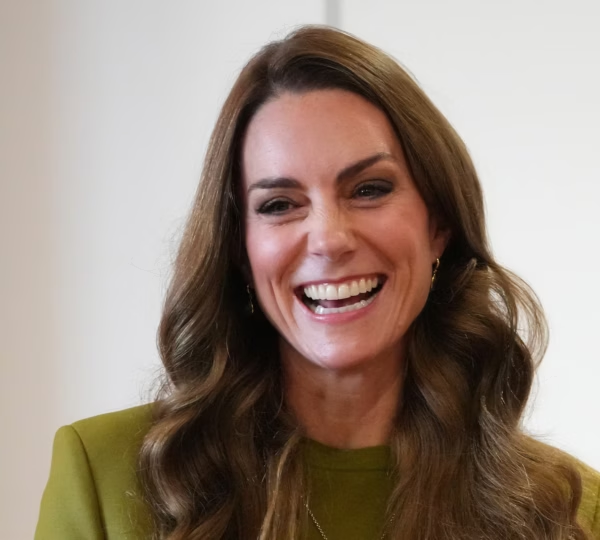In her recently published essay titled “The Power of Human Connection in a Distracted World,” the Princess
of Wales delivers a profoundly personal and urgent message to parents, caregivers and anyone raising children in today’s digitally saturated culture.
She draws attention to the fact that although we live in an age of unprecedented connectivity — with smartphones, tablets and endless online networks — many of us are quietly suffering from something far more serious:
an epidemic of disconnection.
In the essay, the Princess writes about a world that is full of screens, notifications and “always on” mental states.
She points out that while technology promises to bring us together, the reality is often the opposite: people are physically side-by-side yet mentally elsewhere, eyes on their devices instead of those closest to them.
She warns that this “fragmentation of attention” is not a harmless by-product of modern life, but a serious threat to the emotional health and development of children.
Why It Matters So Much For Children
The Princess underscores a critical scientific finding: the quality of our relationships — the warmth, the attentiveness, the full presence — is far more important for long-term happiness, health and emotional wellbeing than almost any other factor.
She cites the landmark Harvard Study of Adult Development, which has followed thousands of people over decades and found that those with strong, meaningful relationships consistently fare better in life than those without.
For babies and young children, the stakes are even higher. The Princess notes that from pregnancy through age five, the brain is developing at its fastest and most formative pace — millions of new neural connections are formed each second.
In this vulnerable period, children depend not on likes, shares or screen-mediated interactions, but on face-to-face contact, eye-to-eye communication, shared laughter, supportive response and physical presence These are the building blocks of empathy, confidence and resilience.
When digital devices become the default substitute for these moments, something essential is lost: the sense of being seen, being heard, being valued.
The Princess writes, “When we check our phones during conversations, scroll through social media during family dinners, or respond to e-mails while playing with our children, we’re not just being distracted
we are withdrawing the basic form of love that human connection requires.”

The Epidemic of Disconnection
The words “epidemic of disconnection” are not used lightly.
In her essay, the Princess points out that while today’s young people may be the most “connected” generation in terms of devices and networks, they also report the highest rates of loneliness and social isolation.
She explains that family dinners, friends visiting, clubs and community gatherings have all declined in recent decades — and this cultural erosion of communal life is mirrored in how children and adults form relationships and learn to trust.
Furthermore, she warns that digital distraction, far from being benign, chips away at our capacity to be fully present.
Our smartphones, tablets and computers have become sources of constant distraction, fragmenting our focus and preventing us from giving others the undivided attention that relationships require.”
What She Encourages Parents and Caregivers to Do
Rather than blaming technology outright, the Princess offers a thoughtful and practical set of reflections and suggestions:
-
Choose to give attention — She writes that attention is the most precious gift we can give another person, and it is within each of our reach to consciously offer it.
-
Protect sacred spaces for connection — These include family dinners without phones, moments of listening and eye contact, shared time outdoors, bedtime reading and unhurried conversation.
-
Model presence and relational awareness — She emphasizes that children learn from how adults behave. When parents, caregivers or teachers consistently demonstrate that people matter more than devices, children pick up those habits.
-
Use technology with purpose, not as a default — She clarifies that technology itself is not the enemy; rather, the problem lies in letting it dominate every part of life. The goal is to harness its benefits without allowing it to replace human connection.
-
Start early and stay consistent — The earliest years shape a child’s future capacity to form relationships, regulate their emotions and build meaningful bonds.
Her Personal Reflection
In a candid moment, the Princess acknowledges that she and her husband, Prince William, Prince of Wales, also face the same pressures as many modern parents.
She writes about their own decision in the household that their children do not yet have smartphones and that meal times and shared activities take deliberate priority.
Why This Message Matters
By raising these points, the Princess is not simply giving parenting tips — she is sounding a clear alarm about the direction of our society.
If we allow connection to erode, we risk raising generations that are physically close but emotionally distant, who may struggle to form the kind of deep relationships that sustain them through life’s challenges.
Conversely, by investing in our relational lives now, we invest in both individual and communal wellbeing, health, and happiness for decades to come.
The Final Appeal
She concludes with a call to action:
“If you could invest in just one thing to help you and your family thrive, invest in the relationships you have with each other.”
And she leaves us with these words:
“Look the people you care about in the eye and be fully there — because that is where love begins.”
Her plea is simple, timeless — yet urgent: in a distracted world, human connection is not optional. It is foundational. It is what children need most. It is what families thrive on. And it is what a society depends on





